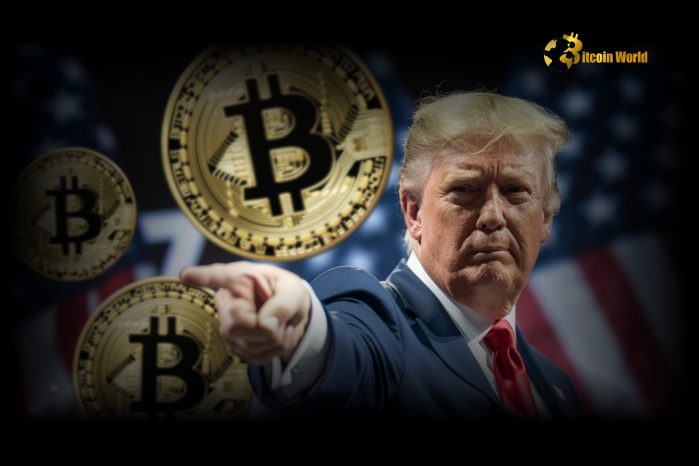Trump Administration Predicted to Launch Cryptocurrency Committee
Fox Business reporter Eleanor Teret revealed via X (formerly Twitter) that U.S. President Donald Trump is expected to sign an executive order establishing a national cryptocurrency committee. The same order may also ban the implementation of a Central Bank Digital Currency (CBDC) in the United States.
While the exact timeline for the order remains unclear, this move reflects the administration’s proactive approach to cryptocurrency policy.
Why Establish a Cryptocurrency Committee?
1. Addressing Market Evolution
The rapid growth of cryptocurrencies has transformed global financial markets. A cryptocurrency committee would provide strategic oversight to:
- Foster innovation in blockchain technology.
- Monitor risks associated with decentralized finance (DeFi).
- Propose regulatory frameworks that balance innovation and compliance.
2. Preventing CBDC Adoption
Trump’s opposition to CBDCs stems from concerns over:
- Privacy Violations: CBDCs could enable governments to track citizens’ financial transactions.
- Centralization Risks: A CBDC would shift control from private financial systems to government entities, conflicting with free-market principles.
- Potential for Abuse: Critics argue that CBDCs could be weaponized for financial surveillance and restricting dissent.
Implications of the Executive Order
If signed, this order could have far-reaching impacts on the cryptocurrency landscape.
1. Boost for Decentralized Cryptocurrencies
A ban on CBDCs would likely encourage private cryptocurrencies like Bitcoin (BTC) and Ethereum (ETH). By focusing on decentralized systems, the administration signals support for innovation over state-controlled digital currencies.
2. Clear Regulatory Framework
The establishment of a cryptocurrency committee may create a clearer legal environment for crypto projects, potentially reducing compliance burdens and attracting investments.
3. Political Messaging
This order could reinforce Trump’s commitment to personal freedoms and limited government intervention, appealing to libertarian and pro-crypto voter bases.
Challenges and Uncertainties
1. Implementation Timelines
While the executive order is anticipated, its release date and details remain uncertain.
2. Resistance from Pro-CBDC Groups
Some economists and lawmakers advocate for CBDCs, arguing they enhance monetary policy and streamline cross-border payments.
3. Global Implications
If the U.S. rejects CBDCs, it may fall behind nations like China, which have already implemented digital currencies.
Industry Reactions
Pro-Crypto Advocates
Industry leaders have applauded the predicted move. They view the potential ban on CBDCs as a commitment to decentralized innovation and user privacy.
Critics
Some financial analysts argue that banning CBDCs could limit the U.S.’s ability to modernize its monetary system, particularly in an increasingly digital global economy.
Conclusion
The Trump administration’s expected executive order to establish a cryptocurrency committee and ban CBDCs could mark a pivotal moment for the U.S. crypto industry. By prioritizing decentralized systems and opposing centralized digital currencies, the administration aligns itself with innovation and individual financial autonomy.
While uncertainties remain, this anticipated move underscores the growing influence of cryptocurrency in shaping national policy.
To learn more about innovative startups shaping the future of the crypto industry, explore our article on latest news, where we delve into the most promising ventures and their potential to disrupt traditional industries.
Disclaimer: The information provided is not trading advice, Bitcoinworld.co.in holds no liability for any investments made based on the information provided on this page. We strongly recommend independent research and/or consultation with a qualified professional before making any investment decisions.


